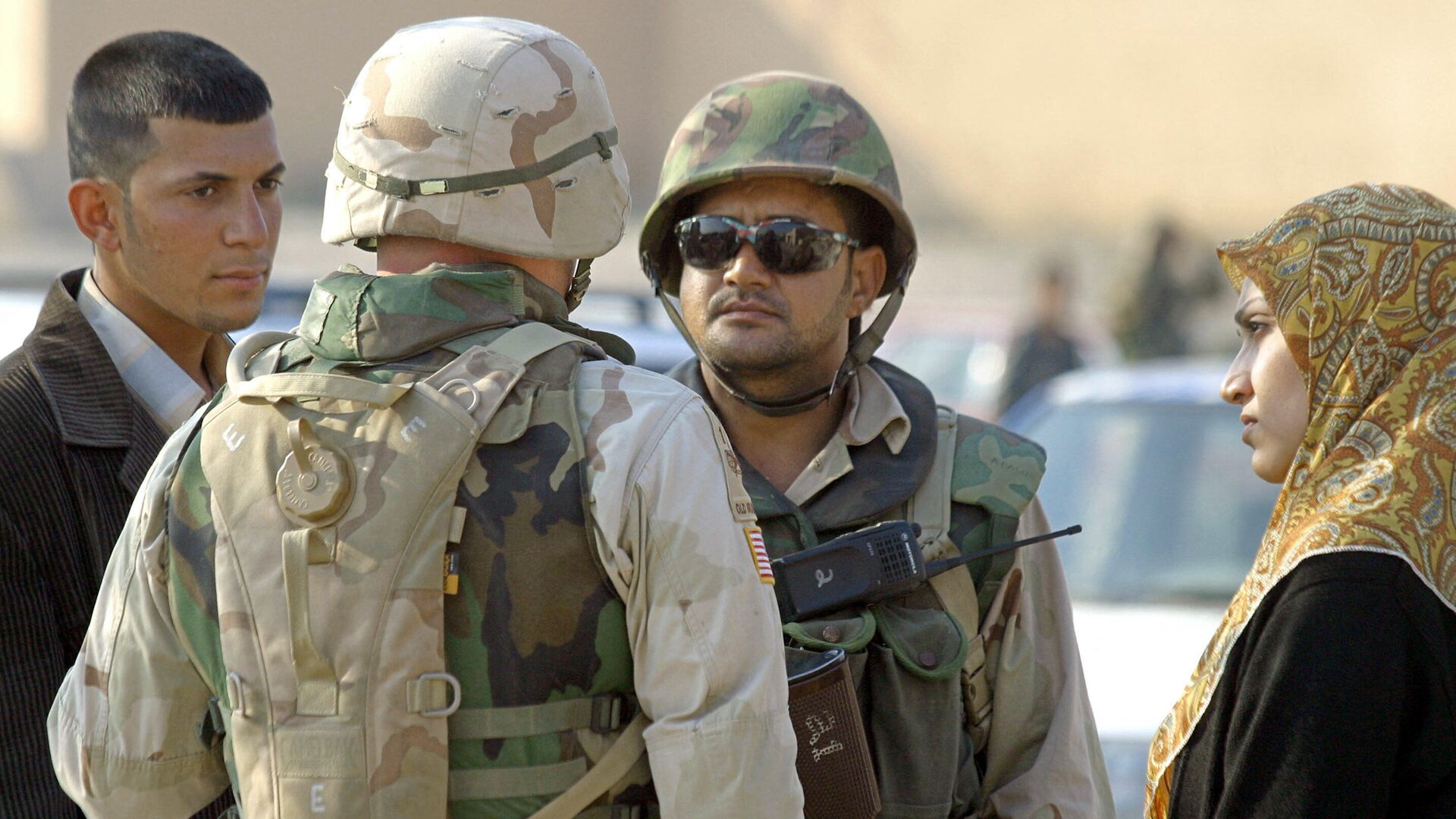'Arab Murder Simulator'? Controversy Erupts Over Video Game Dedicated to Second Battle of Fallujah
16:36 GMT 10.10.2021 (Updated: 10:58 GMT 07.04.2025)

© AFP 2023 / AHMAD AL-RUBAYE
Subscribe
"Six Days in Fallujah", a video game by the company Victura, is described as "a first-person tactical military shooter that recreates true stories of marines, soldiers, and Iraqi civilians during the toughest urban battle since 1968". It is set to be released in December 2021, but has already triggered heated discussions.
Can video games about recent wars be an exciting way to learn history, or is it nothing but an attempt to either capitalise on tragedy or trivialise the pain of survivors? This is what defenders and critics of the upcoming game "Six Days in Fallujah" are trying to figure out as they engage in heated debates on whether it is an "Arab murder simulator" or... just a video game.
Among those who insist that "Six Days in Fallujah" must be shelved is Najla Bassim Abdulelah, who shared her feelings about the game with CNN. As an Iraq War survivor, she said that the game would do nothing but reopen old wounds.
"I am disgusted that this is something that will be producing profit when people like me suffered the consequences of this war and will have to watch people play it for fun", Abdulelah told CNN. "I just can't get past the inhumanity".
A gamer herself, she is still adamant that it is not okay to use "the scenario of someone escaping something so tragic for a game".
She isn't the only one concerned about the upcoming release. An American civil rights group advocating for "empowering American Muslims", the Council on American-Islamic Relations (CAIR), has anointed the game an "Arab murder simulator", referring, apparently, more to the historical events that inspired it rather than the actual game, which is yet to be tested.
"It promotes #Islamophobia and glorifies violence that killed over 800 Iraqi civilians", the civil rights group tweeted over the weekend. "We joined with @VFPNational [Veterans For Peace] to call on Microsoft, Sony, & Valve not to host the game".
Another Iraqi-American, Mohammed Husain, expressed concerns to CNN that the tragic military conflict will be gamified and therefore devalued.
"Instead of a historical incident, now they'll see it as a game", Husain said, referring to potential young gamers.
What is the Second Battle of Fallujah?
The US Army has described the Second Battle of Fallujah, which occurred from 7 November to 23 December 2004, as the bloodiest clash of the Iraq War for American forces. Some 80 American soldiers were killed, and the Red Cross also said that at least 800 innocent Iraqis were killed, with local NGOs going even further and ramping up the numbers to 6,000 people, most of whom were reportedly civilians.
"It seemed like just a massive killing of Arabs. It looked like just a massive killing", Jeff Englehart, an ex-US soldier with the 3rd Brigade, 1st Infantry Division, said in the 2005 documentary "Fallujah, The Hidden Massacre".
US military officials additionally confirmed that white phosphorus was used during the battle - a highly controversial chemical weapon that burns the skin and is prohibited by Protocol III of the Convention on Prohibitions or Restrictions on the Use of Certain Conventional Weapons. The United States, however, has never signed this document and is therefore not bound by it.
Game Controversy
Debates over "Six Days in Fallujah" erupted in April, when CAIR called the yet unreleased game an "Arab murder simulator" for the first time, receiving support from many in their call for Sony and Microsoft not to offer the game in their online stores.
The creators of the game, however, describe it as something made "with authenticity and respect", saying that more than 100 marines, soldiers, and Iraqi civilians were involved in the production process.
Announcing the release in February, Peter Tamte, CEO of the firm Victura that continued production of the game after taking the baton from Atomic Games, who came up with the idea in 2009, said that "it's time to challenge outdated stereotypes about what video games can be".
"It's hard to understand what combat is actually like through fake people doing fake things in fake places", says Victura CEO Peter Tamte. "This generation showed sacrifice and courage in Iraq as remarkable as any in history. And now they're offering the rest of us a new way to understand one of the most important events of our century".
Speaking to CNN, Tamte offered a glimpse into what to expect from the game, slated for release in December, particularly touching upon the topic of interacting with civilians during gameplay.
"Players will encounter civilians during gameplay, and these people also speak directly to players through video interviews", Tamte told CNN. "We want players to get to know these people as real human beings, rather than just avatars on a computer screen. And we want players to hear these Iraqis' perspectives and stories in their own words".
